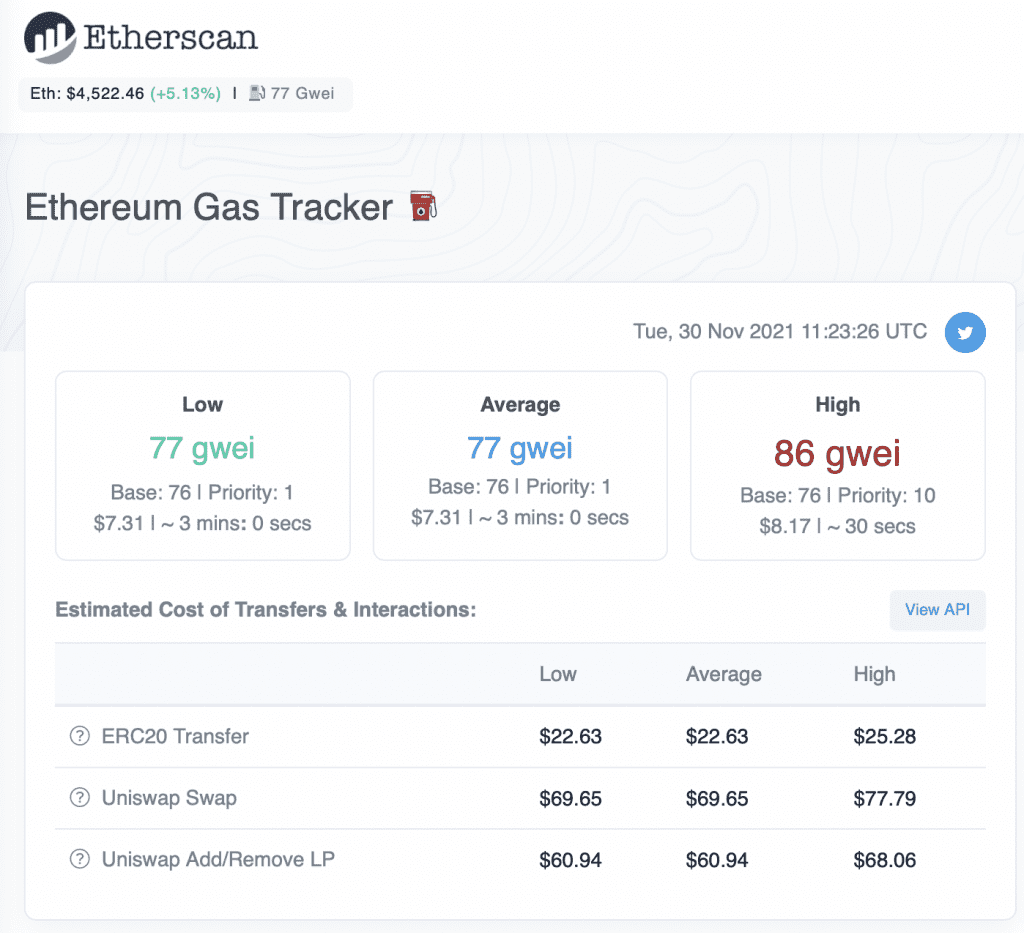Ethereum’s gas fees and speeds are costing not just users, but the ecosystem itself as more and more players are migrating to rival blockchains.
The latest stakeholder to make the move is Crowny – an app rewarding shoppers for various interactions with brands. The date for its migration to Solana is slated for 8 December.
The date for the Migration to @Solana is set!🚀
December 8th is when Crowny and @RaydiumProtocol make it happen, more details will follow!🔥 pic.twitter.com/Wzog22VoNc
— Crowny 🔗 Our Beta App Is Live (@crownyio) November 29, 2021
In a Twitter thread, Crowny stated,
“Solana blockchain offers extremely low costs per transaction and ensures limitless scalability for years to come. This cutting edge architecture is all about speed. It’s the fastest blockchain around. As hardware improves, so does the network.”
At press time, Ethereum’s gas fees were high, with an ERC20 transfer costing around $22.63 on average.
Source: Etherscan
Moving day is here
Choosing Solana over Ethereum isn’t a novel incident. In July 2021, Powerledger, an Australian company in the area of technology and energy, decided to move its platform from Ethereum to Solana.
Co-founder and executive chairman Dr. Jemma Green had commented,
“Our new blockchain platform based on Solana will be tens of thousands of times faster than Ethereum but also energy efficient. As we started this project to allow renewables to be scaled, part of our mission is to be light on our own carbon footprint.”
Another example is the privacy-protecting Internet browser Brave. The company announced a partnership with Solana at the Breakpoint Lisbon event in Portugal. Brave’s official release stated,
“High transaction fees seen on Ethereum (due to increased interest in crypto and DeFi) have held some users back from transacting. Solana is the fastest blockchain in the world and provides the opportunity to scale blockchain transactions for as little as $0.001 – $0.002 USD per transaction, providing significant cost savings for users.”
Furthermore, the Brave crypto wallet is set to integrate Solana in 2022, for decentralized app support.
Looking at these migrations and the reasons for the same, it appears that speed, fees, and energy efficiency are thorns on Ethereum’s side.
Time to pull out the roadmap
Needless to say, there’s a lot of pressure to bring Ethereum up to speed – literally. At the last All Core Devs meeting, Ethereum developers discussed diverse proposals to reduce transaction fees, which are also rising in rollups.
Developer Tim Beiko also noted that time was of the essence. He claimed that the proposals needed to ship before a fork in February.


